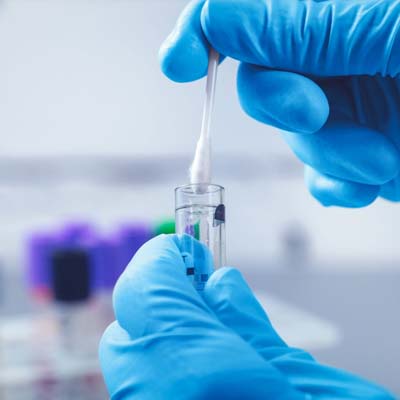Breast Cancer Screening Improvements in New Jersey

October 04, 2023
We’ve long been told that mammograms save lives. And it’s true: Compared with no screening, mammograms reduce breast cancer death rates among women ages 40 and older by 40 percent, according to the National Institutes of Health. The imaging test, which uses specialized X-rays, remains the gold standard to detect smaller, more treatable tumors.
But there’s always room for improvement, and Hackensack Meridian Health leads the field in incorporating new technologies, guidelines and personalized approaches into its already robust offerings.
“Since early detection is the key to survival, and finding cancers at early stages permits less-aggressive and better-tolerated treatments, we employ the best technologists and use the latest technology for our patients,” says Gail Starr, M.D., MSEd, chief of Breast Imaging, Diagnostic Radiology, at Hackensack University Medical Center.
Adds Harriet Borofsky, M.D., medical director of breast imaging at Riverview Medical Center and Bayshore Medical Center: “Breast cancer is a disease that impacts a large number of healthy, vibrant women, and early detection is our best way to halt the natural progression and save lives.”
Dr. Starr and Dr. Borofsky spotlight three recent breast cancer screening innovations and advances.
Contrast Enhanced Mammography
Available at Hackensack and Riverview, contrast enhanced mammography (CEM) is an alternative to highly sensitive breast MRI imaging for women considered at high risk of developing breast cancer due to:
- Personal or family history of the disease
- Genetic mutation
- An abnormal mammogram result
- Suspicious symptoms
CEM combines high-resolution 3D mammography with functional imaging. After a contrast agent is injected into the patient through an IV, the imaging test delivers information about blood supply, improving breast cancer detection.
“Because breast cancers generally have more blood flow, the contrast makes the cancers much easier to see than on a regular mammogram,” Dr. Starr says. “CEM also has fewer false positives, which means fewer additional views and biopsies are needed.”
Artificial Intelligence
At Riverview and Hackensack Meridian Health and Wellness Center at Eatontown, radiologists can get a “second read” on mammogram images using artificial intelligence (AI). After using computer-aided detection technology for decades, these facilities added AI capability in spring 2023, taking it to the next level.
After evaluating a woman’s 3D mammogram images, radiologists need only press a button to add an extra layer of sensitivity and specificity to their interpretation using AI. The technology is able to highlight and rank areas of concern in the breast while also detecting distortions in breast tissue that might otherwise be difficult to notice.
“These findings can be very subtle to the human eye, but AI is taught to recognize patterns,” Dr. Borofsky says.
Personalized Risk Assessments
Hackensack Meridian Health established a unique Breast Imaging Council in 2022 that meets monthly with the goal of “making sure all women placing their trust in our care are getting that high level of care,” Dr. Borofsky says.
One of the Council’s key initiatives is developing a personalized assessment of each woman’s breast screening needs that accounts for factors such as age, breast density, pregnancy history, personal and family history of breast and gynecologic cancers, and biopsy history.
“We realize that not all women are the same in terms of their risk for breast cancer and what type of imaging—or combination—is needed for their screening,” Dr. Borofsky says. “If we’re able to report that risk, we can use it to help a woman and her doctors know the best imaging modality for her—if she needs ultrasound in addition to mammography, needs CEM or needs to see a genetic counselor. When we do this, it will be hugely innovative and impactful for women in our community.”
When to Get Screened
In May 2023, the U.S. Preventive Services Task Force updated its guidance on breast screening, recommending that women undergo mammograms every other year starting at age 40 instead of waiting until age 50, as previously advised. The advice only reinforces Hackensack Meridian Health’s approach all along, however. Experts here had been advising patients to start mammograms at age 40 and continue annually long before the new guidelines, Dr. Starr and Dr. Borofsky note.
But the newly revised guidelines do offer a benefit: They may prompt even more women to come for screening at age 40 instead of 50. “This helps ensure cancers will be detected earlier, when treatments are less aggressive and more effective,” Dr. Starr says.
Next Steps & Resources:
- Schedule a mammogram at a location near you
The material provided through HealthU is intended to be used as general information only and should not replace the advice of your physician. Always consult your physician for individual care.






